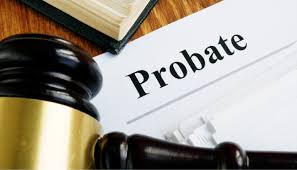Probate Related Matters in India
Introduction to Probate
Probate is a legal process in which a court validates a deceased person’s will and grants authority to the executor to administer the estate. The process ensures that the will is genuine and that the assets of the deceased are distributed according to their wishes.
The probate process in India is governed primarily by:
- The Indian Succession Act, 1925
- State-specific laws, such as Hindu Succession Act, 1956 & Muslim Personal Law
What is Probate?
Probate is a judicial certification that confirms the will of a deceased person is authentic and legally valid. It is issued by the competent court and grants authority to the executor to execute the will.
Key Features of Probate:
- Confirms the validity of a will.
- Gives legal recognition to the executor.
- Prevents disputes regarding the deceased's assets and property.
- Ensures fair distribution among the legal heirs.
When is Probate Required in India?
Probate is compulsory in the following cases:
- If the will is made in a presidency town (i.e., Mumbai, Chennai, or Kolkata).
- If the will is executed by a Hindu, Jain, Sikh, or Buddhist in these towns.
- If the will is contested by legal heirs or beneficiaries.
- If banks, land authorities, or courts demand it before transferring property.
Note: Probate is not compulsory in all cases. It may not be required in other cities or states unless there is a dispute.
Who Can Apply for Probate?
The following individuals can apply for probate:
- Executor Named in the Will – The person appointed by the deceased to execute their will.
- Legal Heirs or Beneficiaries – If no executor is appointed, the legal heirs may apply.
- Any Interested Party – A person who has a financial or legal interest in the estate.
How to Obtain Probate in India?
Step-by-Step Process:
1. Filing a Probate Petition
The executor or interested party must file a probate petition in the competent district court or High Court where the deceased resided.
Documents Required:
- Original will
- Death certificate of the testator
- List of legal heirs & beneficiaries
- Details of assets & properties
- Government fees for probate
2. Issuance of Notice
The court issues a public notice and notifies legal heirs and other interested parties. If no objections are raised, the probate proceeds.
3. Objections (If Any) and Hearings
If a legal heir or any party challenges the will, a court hearing is held to settle disputes.
4. Grant of Probate
If the court is satisfied that the will is genuine, it issues a probate order, authorizing the executor to manage the deceased’s estate.
Timeframe & Costs for Probate
- Time Required: 6 months to 1 year (longer if contested).
- Court Fees: Varies by state; typically 2%-7.5% of the estate’s value.
Common Probate-Related Disputes
- Will Forgery Allegations – Disputes over the authenticity of signatures or documents.
- Undue Influence or Coercion – Claims that the deceased was forced into making the will.
- Multiple Wills – When different versions of a will exist, leading to conflicts.
- Exclusion of Legal Heirs – When legal heirs are not mentioned in the will.
- Executor Mismanagement – If the executor misuses funds or delays asset distribution.
Landmark Judgments on Probate Matters
1. Ishwardeo Narain Singh v. Kamta Devi (1954)
- The Supreme Court ruled that a probate court only determines the validity of the will and does not decide inheritance rights.
2. K.K. Modi v. K.N. Modi (1998)
- The court held that probate cannot be granted if there is evidence of undue influence or coercion.
3. Bimla Devi v. Arun Kumar (2014)
- The Supreme Court emphasized that clear proof of fraud or forgery is needed to challenge a will.
Alternatives to Probate in India
If probate is not required, the following documents can be used to transfer property:
- Legal Heir Certificate – Issued by the revenue department to establish legal heirs.
- Succession Certificate – Issued by the court under the Indian Succession Act for movable assets.
- Letter of Administration – Granted by the court if there is no executor in the will.
Conclusion
Probate is an important legal process to validate wills and ensure smooth property transfer. While not mandatory in all cases, it is essential in disputed matters or where financial institutions require authentication. Legal heirs should carefully assess whether probate is necessary and seek legal advice for a seamless process.
